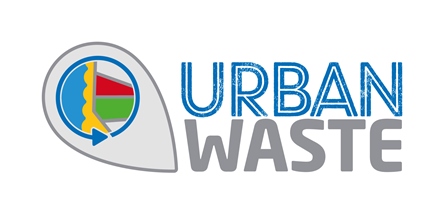News
URBAN-WASTE
The URBAN-WASTE project – Urban strategies for Waste Management in Tourist Cities – aimed to support policy makers in answering to the challenges of booming tourism in European cities, including high levels of unsustainable resource consumption and waste production.
Project co-funded by the European Commission, under the Horizon 2020 programme, 2016 - 2019
Highlights
After three years, the project ended in big style with a memorable final conference which presented the findings and outcomes of the long work of the 27 project partners, including 11 pilot cities and regions. It also included a signing ceremony of the Charter of Commitments launched in January 2018.
The end of the project also saw several crucial deliverables being published, with the Guidelines for City Managers targeting local and regional authorities and a unique paper on gender mainstreaming and gender equality in waste management being the most significant.{slider THE PROJECT}
The URBAN-WASTE project’s objective was to help develop strategies aimed at reducing the amount of municipal waste production as well as strategies to further develop re-use, recycling, collection, and disposal of waste. In doing so URBAN-WASTE adopted and applied the urban metabolism approach to support the switch to a circular model where waste is considered as resource and reintegrated in the urban flow.
The project developed eco-innovative and gender-sensitive waste prevention and management strategies in cities with high levels of tourism in order to reduce the urban waste production and improve municipal waste management. These strategies facilitate the reintroduction of waste as a resource into the urban metabolism flows and address waste management, risk prevention and land-use as an integral part of urban development.
11 pilot cities and regions were on the frontline of the project, implementing the developed tools and strategies: Tenerife (ES), Tuscany region (IT), Kavala (GR), Copenhagen (DK), Lisbon (PT), Metropole Nice Cote d’Azur (FR), Nicosia (CY), Ponta Delgada (PT), Santander (ES), Syracuse (IT) and Dubrovnik-Neretva County (HR).
The participatory approach was structured in a mobilisation and mutual learning action plan for waste prevention and management in tourist cities and attracted a number of non-partner cities, too.
{slider THE WASTEAPP}
The project delivered a set of ICT tools, namely the WasteApp mobile application and gather key stakeholders along the tourism and waste value chain around Communities and Practice.
The WasteApp is a mobile phone application designed to promote users’ good behaviour regarding waste, to have a positive impact on waste management and follow cities’ litter policies. Based on gamification strategy’s use to encourage good practices, it has been created mainly for tourists, but can be used also by residents.
{slider THE URBAN-WASTE AND BLUEISLANDS CHARTER}
The URBAN-WASTE project put forward a “Charter of Commitments for Sustainable Material Resources Management and Circular Economy”. It represents a manifesto aimed at local and regional authorities who want to express their intentions to adapt their tourism sector to the given environmental capacities of the area of interest and further develop and enrich their tourism offer with eco-innovative strategies and measures which will turn tourism more sustainable and environmentally-friendly. The 11 pilot cities and regions represented the core mass of the campaign and were the creators of the mass effect, encouraging other cities and regions to join the network.
The Charter was developed in partnership with the BLUEISLANDS project, which aims at identifying, addressing and mitigating the effects of the seasonal variation of waste generation on Mediterranean islands as an effect of tourism
{slider GUIDELINES}
To support city managers and policy makers in replicating the URBAN-WASTE strategies in tourist cities, guidelines have been prepared and published. They allow city managers, including decision and policy makers, to understand the underlying liaisons between tourism and waste management processes and enable them to recreate some of the URBAN-WASTE processes in order to improve their local waste management practices and adapt them to their local tourism patterns.
The Guidelines are enriched with 22 factsheets which serve as manuals for the implementation and multiplication of the 22 eco-innovative measures the cities were implementing.
Read the Guidelines
Discover the 22 eco-innovative measures.
{slider WEBINARS}
6 webinars were organised as a part of the capacity building activities of the project on the following topics:
- Waste and tourism: how to set a participative approach;
- Implementation of innovative waste management measures in tourism: who and why?;
- Communicating good practices and innovative measures to appropriate target groups;
- Quantifying the environmental impact of waste management practices in tourism;
- URBAN-WASTE and ConsumeLess Med: teaming up for sustainable tourism;
- URBAN-WASTE: Guidelines for City managers.
{slider PARTNERS INVOLVED}
URBAN-WASTE’s project leader is the Government of Canary Islands and its project partners are:
|
|
*ACR+ members
{/sliders}















